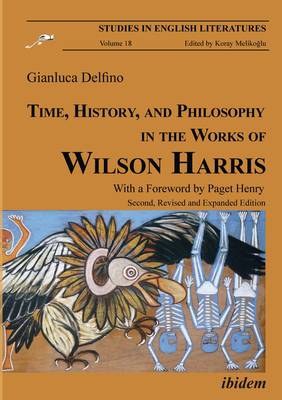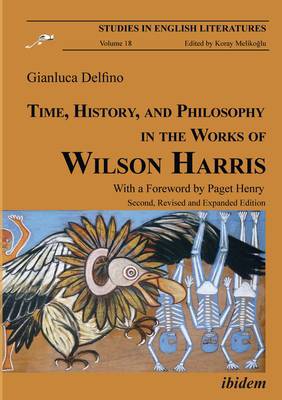
Bedankt voor het vertrouwen het afgelopen jaar! Om jou te bedanken bieden we GRATIS verzending (in België) aan op alles gedurende de hele maand januari.
- Afhalen na 1 uur in een winkel met voorraad
- In januari gratis thuislevering in België
- Ruim aanbod met 7 miljoen producten
Bedankt voor het vertrouwen het afgelopen jaar! Om jou te bedanken bieden we GRATIS verzending (in België) aan op alles gedurende de hele maand januari.
- Afhalen na 1 uur in een winkel met voorraad
- In januari gratis thuislevering in België
- Ruim aanbod met 7 miljoen producten
Zoeken
Omschrijving
Gianluca Delfino's study is based on the assumption that Wilson Harris' works as a whole show a remarkable unity of thought rooted in their author's complex imagination. As a valuable contribution to Caribbean Literature and Philosophy, Harris' imaginative approach to reality is discussed in relation to the categories of history and time with reference to several novels, from "Palace of The Peacock" to "The Mask of the Beggar", with a special focus on "The Infinite Rehearsal", "Jonestown" and "The Dark Jester", spanning more than forty years of his vast literary production, encompassing critical perspectives ranging from African philosophy to Jungian readings through historiography and anthropology. As a result, the cross-cultural quality of Harris' thought emerges as a healing outcome of the traumatic colonial encounter, bringing together elements of Amerindian, African and European origin in an ongoing dialogue with time, nature, and the psyche. The outcome of an extensive research into Harris' world, Delfino's study stands in the tradition of the late Hena Maes-Jelinek's critical enterprise by expanding philosophical and psychological readings, with the addition of anthropological perspectives that appeal to those who were captured by Harris' intricacy and rescued by Maes-Jelinek's illuminating interpretations. The attempt to reconstruct a unifying frame around Harris' body of work suggests a new way of looking at one of the Caribbean's most controversial authors.
Specificaties
Betrokkenen
- Auteur(s):
- Uitgeverij:
Inhoud
- Aantal bladzijden:
- 230
- Taal:
- Engels
- Reeks:
- Reeksnummer:
- nr. 18
Eigenschappen
- Productcode (EAN):
- 9783838202655
- Verschijningsdatum:
- 1/11/2012
- Uitvoering:
- Paperback
- Formaat:
- Trade paperback (VS)
- Afmetingen:
- 148 mm x 210 mm
- Gewicht:
- 281 g

Alleen bij Standaard Boekhandel
+ 156 punten op je klantenkaart van Standaard Boekhandel
Beoordelingen
We publiceren alleen reviews die voldoen aan de voorwaarden voor reviews. Bekijk onze voorwaarden voor reviews.









